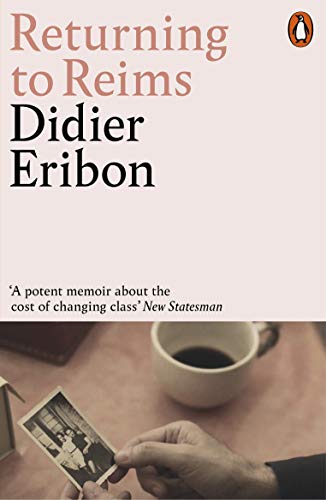Anti-Bourgeois Theory
 Monday, March 18, 2019 at 10:17AM
Monday, March 18, 2019 at 10:17AM This is the abstract for my forthcoming keynote lecture at Technology, Science, and Culture: A Global Vision Universidad de las Américas (UDLAP), Puebla, Mexico, 6 September 2019.
In his celebrated 2009 memoir Returning to Reims, the Parisian intellectual and theorist Didier Eribon travels home for the first time in thirty years following the death of his father. There he tries to account for the change in politics of his working class family over the period he has been away: from supporting the Communist Party to voting for the National Front. (With the notable exception of the 2018 election of Andrés Manuel López Obrador in Mexico, it’s a shift toward the populist nationalism of the far right that’s visible in many countries today: UK, Germany, Poland, Italy, Greece, Hungary, US, Brazil.) But Eribon also discusses the transition he himself has undergone as a result of having escaped his working class culture and environment through education, and how this has left him unsure whom it is he is actually writing for. He may be addressing the question of what it means to grow up poor and gay, however he is aware few working class people are ever likely to read his book.
 At the same time, Eribon emphasizes that his non-conforming identity has left him with a sense of just how important it is to display a ‘lack of respect for the rules’ of bourgeois liberal humanist ‘decorum that reign in university circles’, and that insist ‘people follow established norms regarding “intellectual debate” when what is at stake clearly has to do with political struggle’. Together with his friend Édouard Louis and partner Geoffroy de Lagasnerie, Eribon wants to ‘rethink’ the antihumanist theoretical tradition of Foucault, Deleuze, Cixous et al. to produce a theory ‘in which something is at stake’: a theory that speaks about ‘class, exploitation, violence, repression, domination, intersectionality’, and yet has the potential to generate the same kind of power and excitement as ‘a Kendrick Lamar concert’.
At the same time, Eribon emphasizes that his non-conforming identity has left him with a sense of just how important it is to display a ‘lack of respect for the rules’ of bourgeois liberal humanist ‘decorum that reign in university circles’, and that insist ‘people follow established norms regarding “intellectual debate” when what is at stake clearly has to do with political struggle’. Together with his friend Édouard Louis and partner Geoffroy de Lagasnerie, Eribon wants to ‘rethink’ the antihumanist theoretical tradition of Foucault, Deleuze, Cixous et al. to produce a theory ‘in which something is at stake’: a theory that speaks about ‘class, exploitation, violence, repression, domination, intersectionality’, and yet has the potential to generate the same kind of power and excitement as ‘a Kendrick Lamar concert’.
In this keynote talk I likewise want to reinvent what it means to theorise by showing a certain lack of respect for the rules of bourgeois decorum the university hardly ever questions. I want do so, however, by also breaking with those bourgeois liberal humanist conventions of intellectual debate that – for all his emphasis on rebelling ‘in and through’ the technologies of knowledge production – continue to govern the antihumanist theoretical tradition Eribon and his collaborators are associated with. Included in these conventions are normative ideas of the human subject, the proprietorial author, the codex print book, critical reflection, linear thought, the long-form argument, self-expression, originality, creativity, fixity and copyright. I will argue that even the current landfill of theoretical literature on matter and the material, the posthuman and the Anthropocene, is merely a form of bourgeois liberal humanism that is padded with nonhuman stuffing – technologies, objects, animals, insects, plants, fungi, compost, microbes, stones, geological formations – to make it appear different. Can we not do better than this?







Reader Comments